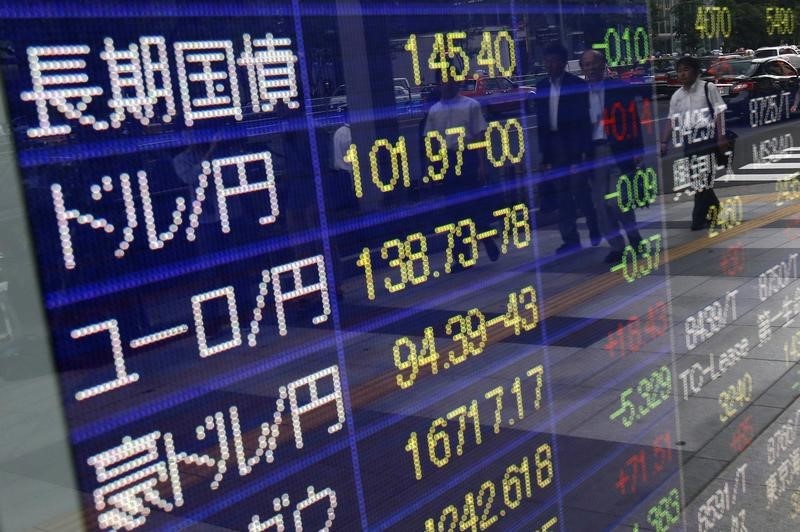Investing.com - Asian stocks were mixed in morning trade on Tuesday. The Nikkei 225 inched up as Japan and the U.S. began trade talks in Washington.
Japan kicked off a two-days negotiations with Washington on Monday. The two sides are reportedly hoping to resolve some of the issues “very quickly.”
In an interview with CNBC on Monday, Bank of Japan Governor Haruhiko Kuroda said “some sort of protectionism” around global trade was the “most serious risk involved in the global economy.”
U.S. President Donald Trump had made it clear he is unhappy with Japan’s $69 billion trade surplus with the U.S. and had threatened to impose levies of as much as 25% on all imported cars, including those made in Japan.
Meanwhile, China’s Shanghai Composite and the Shenzhen Component traded 0.1% and 0.8% lower by 10:30 PM ET (02:30 GMT).
South Korea’s KOSPI edged down 0.1%. Shares of Asiana Airline (KS:020560) jumped 25% after Reuters reported that a top shareholder of the company would sell its entire stake in Asiana to keep it afloat.
Down under, Australia’s ASX 200 gained 0.5%.
Investor sentiment improved this week after strong trade and credit data from China eased investor concerns about a slowdown in global economic growth. Expectations that Chinese and U.S. trade negotiators would reach a trade agreement soon also lifted confidence.
In other news, Eric Rosengren, president of the Boston Federal Reserve, said the U.S. Fed should let inflation run above 2% “in good times.”
"My own preference would be an inflation range," because hitting the current target will only get harder with rates as low as they are, Rosengren said at Davidson College in North Carolina. "Even though we're only missing by a little bit it actually does matter if you miss by a little bit on a regular basis."
The Fed's preferred inflation measure, the core personal consumption expenditures price index, is currently at 1.8%.
